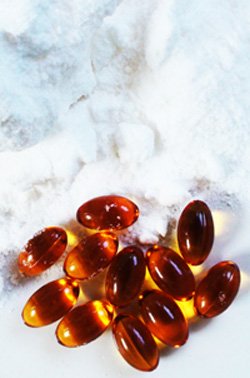17th Feb 2010
Natural Pet Food
 … It is almost shameful that we nowadays use, or if you are a real natural pet food manufacturer, have to use, the term ‘natural’ to describe pet foods. Pet food should be natural without having to make a big deal out of it. However, time is always changing! And so are advertising claims and marketing needs…
… It is almost shameful that we nowadays use, or if you are a real natural pet food manufacturer, have to use, the term ‘natural’ to describe pet foods. Pet food should be natural without having to make a big deal out of it. However, time is always changing! And so are advertising claims and marketing needs…
What do they mean if they say their pet food is ‘natural’?
In most cases they mean that no (obvious) synthetic chemicals are used as ingredients, such as synthetic preservatives or artificial colors. Is this good enough to call it natural? Not necessarily.
If a pet food manufacturer includes ‘refined’ ingredients such as ‘rice’ instead of whole rice, or ‘quinoa flour’ instead of ‘whole quinoa flour’, or ‘honey’ instead of ‘raw honey’, the food already isn’t natural any more because it contains food fragments instead of the entire whole food. Nutrients in whole foods act in synergy, that means they enhance, buffer and balance each others actions. Nutirents in most food fragments loose this natural synergy between nutrients which can lead to health problems such as insulin resistance, gluten insensitivity, and their associated disease symptoms.
If a pet food manufacturer uses isolated minerals and vitamins to supplement their foods so that they fulfill AAFCO requirements for a ‘balanced’ or ‘complete diet’, these foods also are no longer ‘natural’.
Why would that be?
Because the vitamin and mineral supplements used for pet foods aren’t really natural (i.e., whole food-based) but synthetic. For example, most vitamin E supplements (even the ‘natural’ versions and those marketed as ‘100% natural’) are derived from genetically engineered soybeans. Genetic engineering of ingredients simply isn’t natural; and as increasing numbers of studies show, this technology renders foods unhealthy.
Synthetic supplements can also contain harmful contaminations that accumulate during the chemical manufacturing processes. Furthermore, synthetic supplements, unlike naturally occurring nutrients, are also often not bioavailable, have unpredictable biological actions, or they can accumulate in the body to unhealthy levels. But nobody seems to like to talk much about this.
If a pet food contains conventional instead of certified organic ingredients, these ingredients can be loaded with artificial and toxic chemicals such as pesticides, can be irradiated, genetically engineered, or all of the above. Even if you omit synthetic preservatives from such foods, these foods are a far cry from ‘natural’.
So, what would I call a ‘natural pet food’?
In my view, both as a biologist and pet food manufacturer, ‘natural pet foods’ are certified organic, unrefined, minimally processed and whole food-based.
 … It is almost shameful that we nowadays use, or if you are a real natural pet food manufacturer, have to use, the term ‘natural’ to describe pet foods. Pet food should be natural without having to make a big deal out of it. However, time is always changing! And so are advertising claims and marketing needs…
… It is almost shameful that we nowadays use, or if you are a real natural pet food manufacturer, have to use, the term ‘natural’ to describe pet foods. Pet food should be natural without having to make a big deal out of it. However, time is always changing! And so are advertising claims and marketing needs…
What do they mean if they say their pet food is ‘natural’?
In most cases they mean that no (obvious) synthetic chemicals are used as ingredients, such as synthetic preservatives or artificial colors. Is this good enough to call it natural? Not necessarily.
If a pet food manufacturer includes ‘refined’ ingredients such as ‘rice’ instead of whole rice, or ‘quinoa flour’ instead of ‘whole quinoa flour’, or ‘honey’ instead of ‘raw honey’, the food already isn’t natural any more because it contains food fragments instead of the entire whole food. Nutrients in whole foods act in synergy, that means they enhance, buffer and balance each others actions. Nutirents in most food fragments loose this natural synergy between nutrients which can lead to health problems such as insulin resistance, gluten insensitivity, and their associated disease symptoms.
If a pet food manufacturer uses isolated minerals and vitamins to supplement their foods so that they fulfill AAFCO requirements for a ‘balanced’ or ‘complete diet’, these foods also are no longer ‘natural’.
Why would that be?
Because the vitamin and mineral supplements used for pet foods aren’t really natural (i.e., whole food-based) but synthetic. For example, most vitamin E supplements (even the ‘natural’ versions and those marketed as ‘100% natural’) are derived from genetically engineered soybeans. Genetic engineering of ingredients simply isn’t natural; and as increasing numbers of studies show, this technology renders foods unhealthy.
Synthetic supplements can also contain harmful contaminations that accumulate during the chemical manufacturing processes. Furthermore, synthetic supplements, unlike naturally occurring nutrients, are also often not bioavailable, have unpredictable biological actions, or they can accumulate in the body to unhealthy levels. But nobody seems to like to talk much about this.
If a pet food contains conventional instead of certified organic ingredients, these ingredients can be loaded with artificial and toxic chemicals such as pesticides, can be irradiated, genetically engineered, or all of the above. Even if you omit synthetic preservatives from such foods, these foods are a far cry from ‘natural’.
So, what would I call a ‘natural pet food’?
In my view, both as a biologist and pet food manufacturer, ‘natural pet foods’ are certified organic, unrefined, minimally processed and whole food-based.
 Posted by Heidi Junger, PhD under
Posted by Heidi Junger, PhD under  natural pet food
natural pet food  No Comments »
No Comments »

